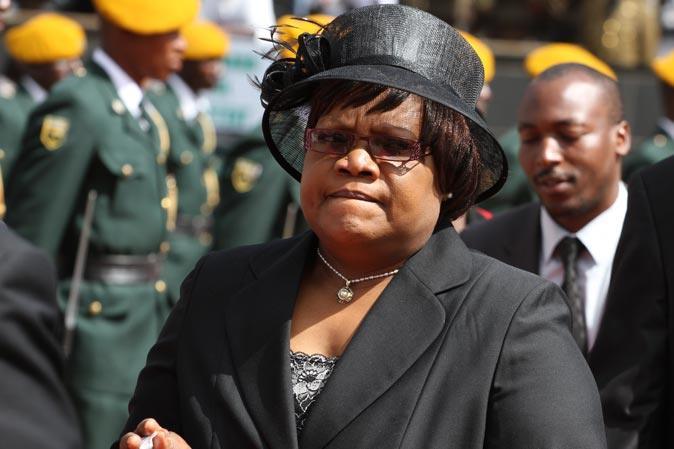
Zimbabwe has for years been engrossed in the debate over who might possibly take over the reins from President Robert Mugabe when he finally vacates the throne — whichever way it happens.
BY VENERANDA LANGA
Ninety-year-old Mugabe has been in power since Independence in 1980 but has not indicated when he will step down or hinted on a possible successor.
But with age and poor health now catching up with Mugabe, a school of thought that Zimbabwe is ripe for a female President is emerging.
Those that subscribe to this belief anchor their arguments on the fact that the country has many women who have the requisite qualities to lead the nation.
They also argue that if other African countries such as Malawi and Liberia had female Presidents in the persons of Joice Banda and Sirleaf Johnson respectively, then there was absolutely no reason why Zimbabwe could not achieve the same feat.
There people who however, believe that for any woman to succeed in attaining Presidential level, they need to be propped up by men. Currently, two factions in Zanu PF are said to be positioning themselves for the Presidency. One of the factions is allegedly led by a woman, Vice-President Joice Mujuru, while the other is linked to Justice, Legal and Parliamentary Affairs minister Emmerson Mnangagwa.
Zimbabwe Women Resource Centre and Network (ZWRCN) director, Pamela Mhlanga said women in the country had the potential to lead. She said they had already demonstrated their capability in Parliament and Cabinet where they were actively taking part in debate and decision-making processes.
- Chamisa under fire over US$120K donation
- Mavhunga puts DeMbare into Chibuku quarterfinals
- Pension funds bet on Cabora Bassa oilfields
- Councils defy govt fire tender directive
Keep Reading
“Leadership is a learning process and I think women have shown they have the vision and ability to learn and lead. As ZWRCN, we are prepared to support women into leadership positions. We also believe that we need to look at women who are already in positions of influence across the board — whether it is at the Zimbabwe Electoral Commission, our own VP Mujuru, the deputy Governor of the Reserve Bank of Zimbabwe and nurture their potential,” Mhlanga said.
She said it was not true that women needed to be propped up by men to attain high positions, adding that testimonies from female MPs proved women could support each other to attain positions of power.
Parliament’s Women’s Caucus chairperson and Zanu PF senator for Manicaland Monica Mutsvangwa also believes women are ready for the Presidency.
“Women are a force to reckon with and they have always been there at the forefront of leadership. An example is that of our heroine Ambuya Nehanda who led during the early struggles for independence. During the liberation struggle women also fought side by side with men and it simply means women can do anything and are a force to reckon with,” she said.
“Since 1980, women have also benefitted from education programmes spearheaded by government and we now have many educated women who can take part in decision-making processes.”
Mutsvangwa said issues of succession were discussed at party congress where people decided who they wanted to lead them – whether male or female.
But political analyst Alexander Rusero said the question of whether Zimbabwe was ready for a female President was not really based on gender equity issues. He said Zanu PF, which is a party based on communist ideologies, was unlikely to back a female Presidential candidate because in the history of communism and in countries that practised it, there had never been a female President.
“It is too early to talk about a new Presidential candidate. I do not see Mugabe handing over power one year after the July 31 2013 elections,” said Rusero.
“The question of whether Zimbabwe is now ripe for a female President is a difficult one to answer because one would also ask whether the top heavy female politicians are being propped up by men or women. One finds that they are at the behest of men and it is not based on gender equity issues.”
Rusero said Zimbabwe was slightly behind in terms of achieving gender parity and to see the country achieving attainment of a female President was going to be a mammoth task as men continued to decide what women should get politically, socially and economically.
“Men deliberately prop up females to block other men from attaining certain positions. I also do not think Zanu PF as a revolutionary party is prepared to be led by women. The party relies on communist ideology and if one studies communism, they will hardly find women in power,” he said.









